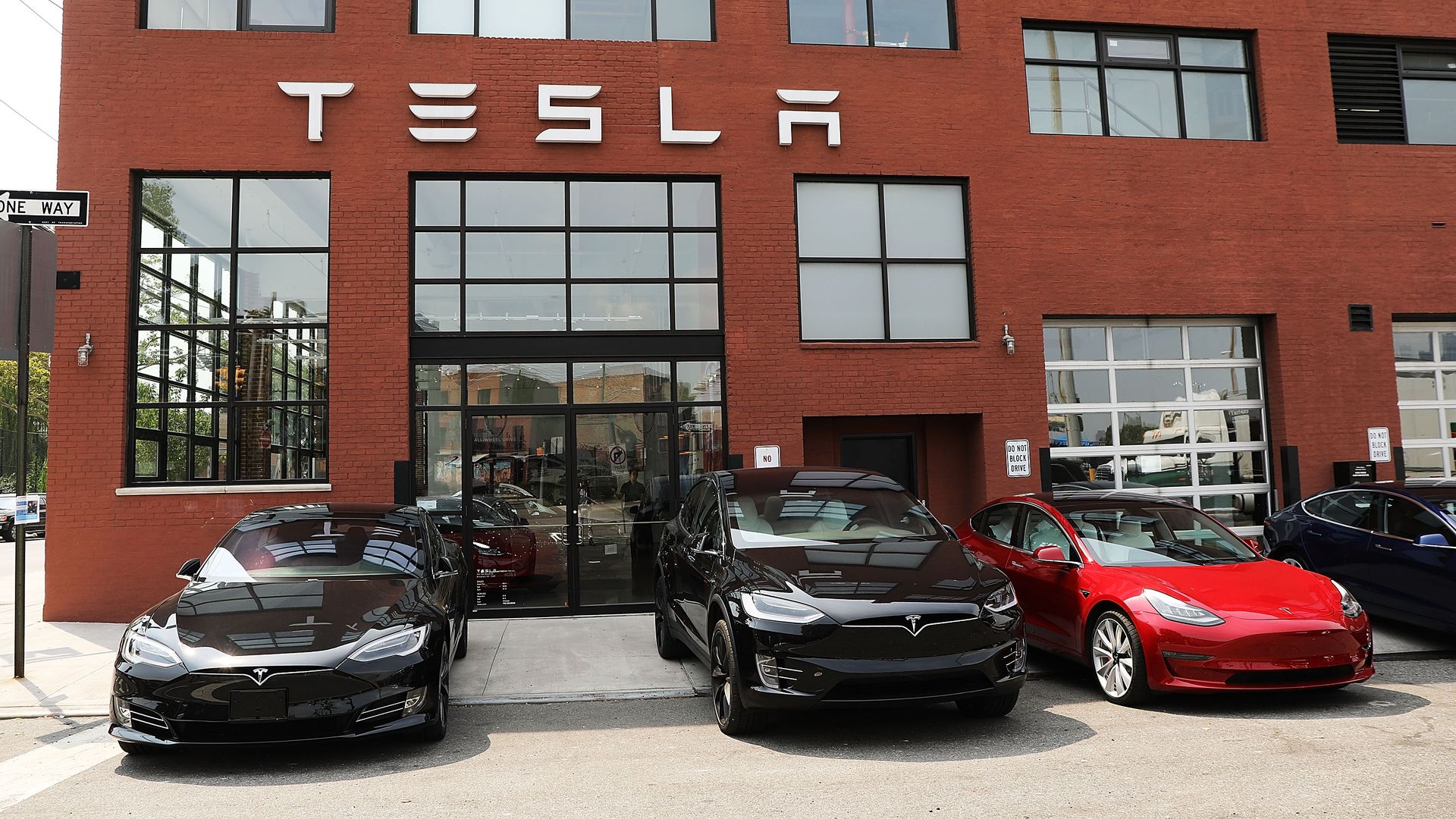Jan 31, 2019 - Energy & Climate
Expert VoicesU.S. EV sales are up, but better incentives needed for SUVs, crossovers
Add Axios as your preferred source to
see more of our stories on Google.

Teslas outside a Brooklyn showroom and service center. Photo: Spencer Platt via Getty Images
